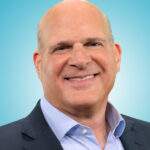“I told my wife a man is like wine, he gets better with age. She locked me in the cellar.”
– Rodney Dangerfield
[Exciting News: Starting today, you’ll see some new Grey Swan branding for this email, representing our new mission. There’s nothing you need to do on your end to continue receiving your emails. Our “new look” simply better represents our goal of delivering you deeper access to the Grey Swan intelligence community — and warn you of potential low-probability, but high-impact events. Watch for the Grey Swan website soon!]
July 22, 2024 – Yesterday, around 2 p.m., my wife Jennifer and I were visiting our son in New York City. He and his girlfriend live in the Greenpoint neighborhood of Brooklyn. It’s a slowly gentrifying Polish neighborhood. Union signs are still visible, proudly displayed next to street art, graffiti and modern trap symbols.
More inhabitants, including my son, display tattoos somewhere on their bodies than don’t. Nose rings and blue or purple hair are fairly prevalent. It’s a safe, quiet neighborhood with splendid views of midtown Manhattan across the East River.
We were deep in the back of a Polish-American food market, selecting staples for the apartment: pickled herring, European chocolates and toilet paper, I think. The market was busy with all manner of humanity buying their own goodies.
The cash registers were curiously placed at the back of the store. So it was more like a gaggle of people trying to pay rather than a line.
Suddenly, an old-school loudspeaker crackled, interrupting the pop music that had been playing.
Everyone stopped talking. There was a collective gasp.
One older gentleman who could have easily stepped out of a Greenwich Village coffee shop immediately started tapping on his phone.
He then looked up and pointed at me, for some reason, among the group of neighborhood locals. He held us his phone to show a New York Times breaking news headline:

“You will remember,” Robert Zimmerman said to me, “where you were standing when Biden relayed his news.”
“Well, now I certainly will. Thanks!” I replied.
We’ve been writing about Biden’s cognitive issues for so long, that I’d forgotten how making the actual announcement would be received by his followers. It looked like the guy was going to cry.
We first forecast that Biden wouldn’t be able to stick it out until November in February, 2024. You may remember.
At that time, the suggestion was mistaken as partisan grandstanding. As we expected it would.
Truth is, we had already heard from “insiders” close to the president in both Washington and New York who were wringing their hands with anxiety over his mental state.
It took a long time for the media to come around… then there was the debate debacle.
CONTINUED BELOW…
>>>>>ADVERTISEMENT<<<<<
2024 – The Real Election Year SurpriseIn 2016, the October Election Surprise was Hillary Clinton’s email scandal… In 2020, the October Election Surprise was the suppression of all the dirty material on Hunter Biden’s “forgotten” laptop… Now, in 2024, we’re forecasting an October Election Surprise that almost no one sees coming — and this time it’ll be way more devastating than anything you’ve seen before. Click here to learn about 2024’s real October Election Surprise » In case you missed our prediction that just played out over the weekend. |
CONTINUED…
The politics of who knew what (and when) have already begun. The president’s endorsement of Kamala Harris to be the Democratic candidate likely has about as much weight as did his promises to stay in the race and fight until November. We’ll see, right?
The last sitting president not to seek reelection was President Lyndon B. Johnson. Johnson’s announcement he wasn’t going to run again on March 31, 1968 was equally as shocking to the political establishment as Biden’s at the time… but he gave his party a shot at nominating a candidate through a traditional primary process.
The Democratic Party has been deprived of that opportunity with Biden’s announcement this time. The Democratic National Convention (DNC) begins on Monday, August 19, 2024, four weeks from today.
Traditionally, the convention is reserved for the pomp and circumstance of formally nominating the party’s candidate. Not all factions of the Democratic party support Harris.
The rules committee for the DNC meets on Wednesday to decide what rules they’re going to follow. Will it be a “flash” primary online? Will they invoke the 25th Amendment to usher Harris into the Oval Office and have her run as an incumbent? The speculations are as numerous as they are wild online already.
Regardless, the question of Joe Biden’s “age” will now shift to Donald Trump. He’s less than four years younger than Biden, right?
Ha. Not so fast. Even the independent democratic socialist Bernie Sanders, who is a year older than Biden, is more articulate on the issues he cares about than either Biden or Trump are about theirs.
(Don’t write to me about Sanders. I don’t agree with his policy solutions any more than you do… I’m just making the point that he is articulate about them in a way that Biden has never been.)
Age is not the issue in this election. It never has been. Mental fitness, maybe.
>>>>>ADVERTISEMENT<<<<<
Mark Skousen’s Secret Back Door into the Lucrative World of Private EquityThis investing legend gave a talk to a small group in the heart of Washington, D.C. In it, he revealed the cornerstone of his retirement plan – and the one investment that helped make him a millionaire. Click here to watch Dr. Skousen’s presentation. |
The U.S. political system is not built to handle the challenges of increased longevity. Bloomberg’s John Authers makes some sense in his opinion piece this morning:
We’ve gotten very good at dealing with the risk of dying too young. Even in the world’s poorest countries, life expectancy is surging. Medicine has improved, as has sanitation, and public health initiatives have curbed smoking. Life insurance can cheaply and easily cover the financial risks of an untimely end.
Biden’s abdication rams home, however, that we’re no good at dealing with the risks created by greater longevity. We don’t have the institutions, medical techniques, financial products or — it now appears — political structures to deal with the problems that can come with longer lives. The evolution has been slow and imperfect. Companies that started out to provide life insurance, for example, have tried to adapt to offering pensions instead.
Pensions, Social Security, and even Medicare, for that matter, are industrial-age solutions for aging that don’t engage the people who are actually doing the aging… which we all must.
Prior to and during the Global Financial Crisis of 2007-09, I toured the country screening the film IOUSA and then doing Q&As with audiences. The film took two and a half years to make.
The central premise of the film was articulated by David Walker, then head of Government Accountability Office (GAO), who served as the film’s central protagonist. He was going around the country on a Fiscal Wake Up Tour trying to highlight what he believed to be the nation’s four greatest deficits: savings, trade, budget and (the worst) leadership.
Principle among the four deficits in David’s own work was the deficit in the national budget caused by Social Security and Medicare. As the nation’s top accountant, he was already aghast at how badly the political process was managing the care and feeding of the nation’s elderly.
Not least among the concerns at the time was the fact that the leading edge of the Baby Boom generation had just begun to collect on Social Security in 2003.
The IOUSA tour kicked off with a premier at Qwest arena in Omaha, Nebraska, where Berkshire Hathaway hosts their events. Warren Buffet was among an esteemed group of panelists and agreed to play host to the premier and post-screening event.
The film was simulcast to 457 theaters around the country. We took questions from all audiences by satellite connection.
We screened seven times at the 2008 Sundance Film Festival. David Walker received standing ovations during the Q&As following each screening. The reception of the film prompted Walker to leave his post at the GAO and become the founding president of the Peter G. Peterson Foundation (PGPF).
As part of David’s transition out of public life and into this important role at the PGPF, he presided over Peterson’s billion-dollar (tax-beneficial) donation to establish the foundation with the mission of educating the public about the historical dangers of a nation going so far into debt, especially in times of relative stability.
Fifteen years later, the PGP is a credible non-partisan source for data relating to all kinds of government spending misdeeds.
David and I screened and took questions at both of the national party conventions in Denver and Minneapolis leading up to the ’08 election, which eventually gave way to a two-term Obama presidency. The film was a finalist for a Golden Globe and a nominee for a 2008 Oscar for Best Documentary.
Crowds were wildly receptive to the film. It helped that the financial crisis took millions of individual investors and retirees by complete surprise. Empire of Debt was a New York Times best-seller at the time. We even showed the film across Canada, in the U.K. and in France.
But of all the audiences we talked to, the most meaningful and thought-provoking audience I spoke to took place at the Edenwald Senior Living community in Towson, MD., mere miles from my home.
After showing the film to maybe a hundred or so community members, I gave my honed spiel about the making of the film, data presented, and what it was like to work with the likes of Buffet, Greenspan, Rubin, Paul O’Neill, Ron Paul, Arthur Laffer, Steve Forbes… all “stars” in their own ways.
Near the end of the Q&A period. one gentleman stood up in the back of the room. He was visibly irritated. He was in his early 80s, about the same age as our embattled president today, and proceeded to tell me the short version of his long career, family and investment history.
Then, he let me have it.
The tone of my speech, he told me, was condescending, dismissive of the “elderly” and shorted society of their respective experiences and collective wisdom.
He asked me point blank what I recommended they could do to help, knowing that I would remain speechless. I was stunned. I don’t remember exactly how I stammered my way through the answer.
But that single exchange changed me. The gentleman said he’d been a reader of the Daily Reckoning since we founded it in 1979. He had read Empire of Debt prior to attending the screening of IOUSA. The chapter of the book he found most resonated with his worldview as a successful participant in the economy and political process in his life was Chapter 1, entitled Dead Men Talking.
We spend the entire opening of the book describing how society has discarded the wisdom of the elderly and dead men in history who’d not only crafted our founding documents but had lived through the two centuries of evolving precedent that provided the guardrails of our fragile American experiment in self-government.
People often dismiss the work of what I call “economic realists” as “gloom and doom.” I don’t think it’s gloom and doom at all.
It’s respect. Respect for the hundreds, thousands, and millions of unsung people acting independently in a free society.
Sure, we get snarky and our analysis often seems gloomy.
Why shouldn’t it?
“Government” is made up of people who spend their lives practicing, for the most part, within the precedent set by prior generations. But the very march of precedent leads to expanding the scope and purpose of government to infringe on individual rights.
The cynic in me subscribes to the theory that most government actors are motivated by self-interest and use “social justice” as a convenient draw on the heartstrings of voters and citizens to achieve aims often at odds with the ideals of a free society.
That’s about as political a statement as I can make. And the reason I don’t trust anything that comes out of the mouths of politicians. There is always some backroom deal crafting agenda that requires taxpayer money to carry out.
But more importantly to me, the gentleman who asked me point blank what he could do about government profligacy leading the nation ever closer to bankruptcy, has guided my decisions in business life ever since.
We owe it to ourselves and our readers to provide the best possible advice to live independent lives knowing all we know about how markets, the economy and the government work.
That includes the military, Wall Street, the banks, money management firms, and political action groups. We’re also aware how the tides of history are threatening the American experiment and our own freedom every day.
One feature of our society I have been interested in since that very eye-opening exchange at the Edenwald community has also led me to be interested in what happens to people – our readers included – when they enter “retirement” age.
What decisions do they make? What influences do they have? How do their families treat them? What are their political views? How aware are they of what’s happening in society, politics, the domestic and global economies, and their own currency?
That’s where you come in… send your well-thought-out response to addison@greyswanfraternity.com
So it goes,

Addison Wiggin
Founder, The Wiggin Sessions
P.S.Chip Conley “retired” from AirBNB and subsequently founded the Modern Elder Academy (MEA). The MEA has just opened a second campus for seminars and conferences in Santa Fe, New Mexico.
The first campus he and his partners developed was in Baja California, Mexico. Chip is a veteran of the hospitality industry having established his first entrepreneurial venture as a boutique hotel serving the LBTQ+ community in San Francisco in the 1990s. A lot of his stuff is a little touchy feely for my taste. But I enjoy his fresh perspective on life.
In the Grey Swan community, I am advocating we include a “life
style” component to our body of advice.
I believe Chip’s own work gives the framework to think about it properly. He believes that we do a disservice to all the vibrant entrepreneurial-minded post-career folks with so much experience, wisdom and respect to offer. And to ourselves. We owe it to ourselves to listen to them.
I was deaf to the elderly gentleman’s point of view at Edenwald until I spoke to him in a public forum.
Here’s a three-and-a-half-minute TED talk Chris recently gave on an alternative term to the “Mid-Life crisis.”
It’s worth a listen and only three and a half minutes long. To me it’s worth staking out this territory with a Grey Swan twist. But I’d like to know your thoughts, too. Again, please respond here: addison@greyswanfraternity.com.
How did we get here? For a complete review of the financial, economic, and political history of the United States from Demise of the Dollar through Financial Reckoning Day and on toEmpire of Debt — all three books are available in their third post-pandemic editions.
Empire of Debt: We Came, We Saw, We Borrowed is now available at Amazon and Barnes & Noble or if you prefer one of these sites:Bookshop.org; Books-A-Million; or Target.
Please send your comments, reactions, opprobrium, vitriol and praise to: addison@greyswanfraternity.com








